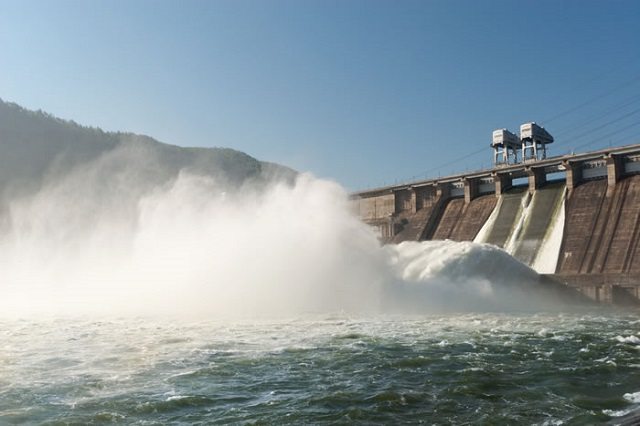The $300 million Tokwe-Mukorsi Dam project is expected to be substantially complete by end of December 2016. The dam was constructed in efforts to provide irrigation water to lowveld sugar estates, as well as surrounding communal farmers.
The construction project involves the construction of a concrete faced rockfill dam (CFRD). The intake structure comprises 35 m tall tower with grilles which direct the water to a 6m diameter tunnel with a left bank 350m long, with a regulation tower and closing sluices. The release of the water into the river bed takes place through two 2m diameter pipes.
Also read:Zimbabwe Power Company commissions Kariba South Expansion Cranes1
There are two spillway overflows, on the left and right banks, with a 6m diameter drainage tunnel approximately 200 m long. In the way of ancillary works there are plans for an 8 km access road and a stone and concrete cofferdam 15 m tall and 133 m long at the crown. The project is completed by 5 saddle dams on the right bank.
The dam, upon completion will be the largest inland dam with a 89.2 metre high dam wall. The dam is being built at the confluence of Tokwe and Mukorsi rivers in Chivi district, Masvingo. The dam also has potential to generate 15 megawatts electricity.
Setting up a mini hydro power station is expected to be at a cost of $40 million. Infrastructure Development Bank of Zimbabwe (IDBZ), is making urgent efforts to raise $7 million to fund the excavation works for the proposed mini-hydro power station.
The dam’s construction has been wholly funded by Government. The contractor, Italian company Salini-Impregilio, is fully mobilised to substantially complete the Dam before the end of the year. Zimbabwe National Water Authority confirmed that there are still outstanding works to be done at the dam. Government recently released $20,3 million to finance the outstanding works.
IBDZ Chief Executive Thomas Sakala said that the project demonstrates Government’s commitment towards the transformation of the economy.
